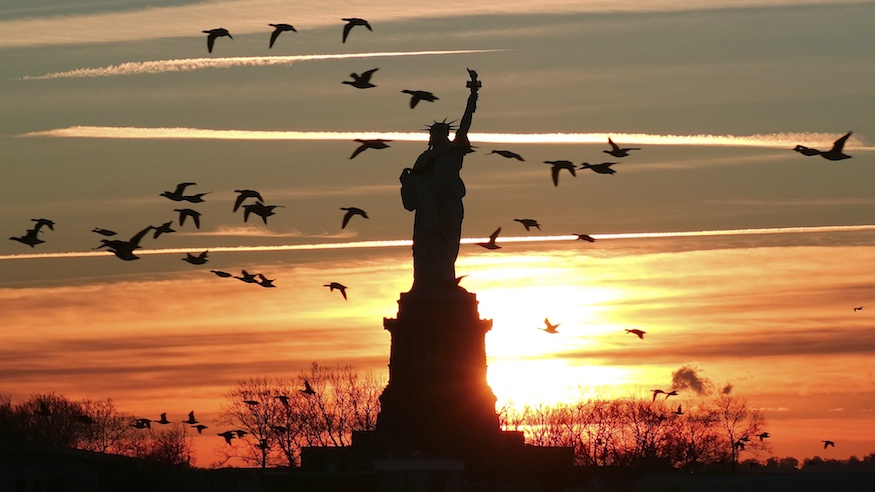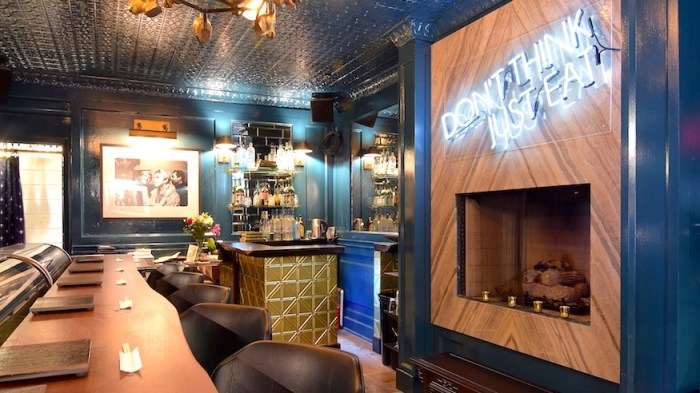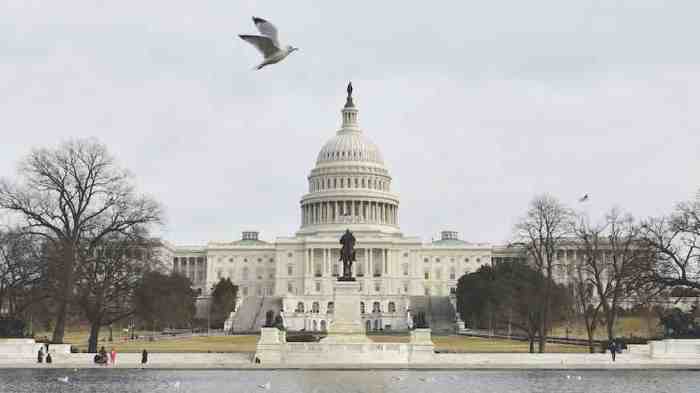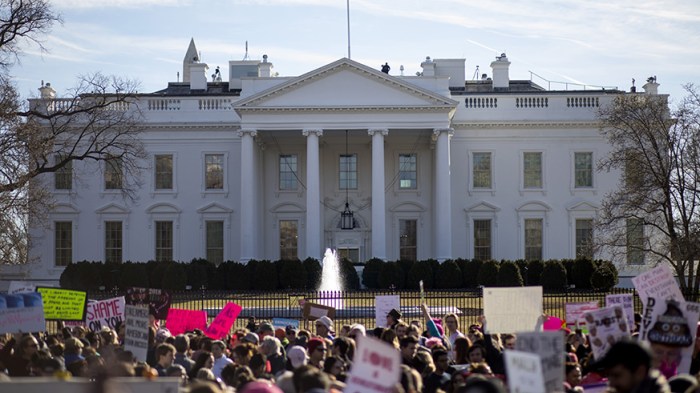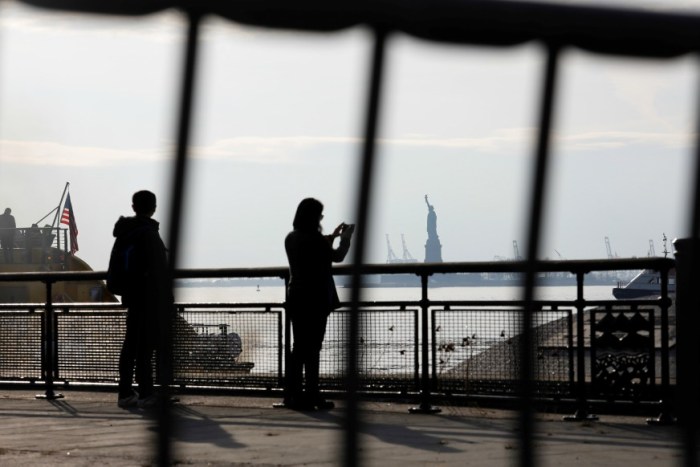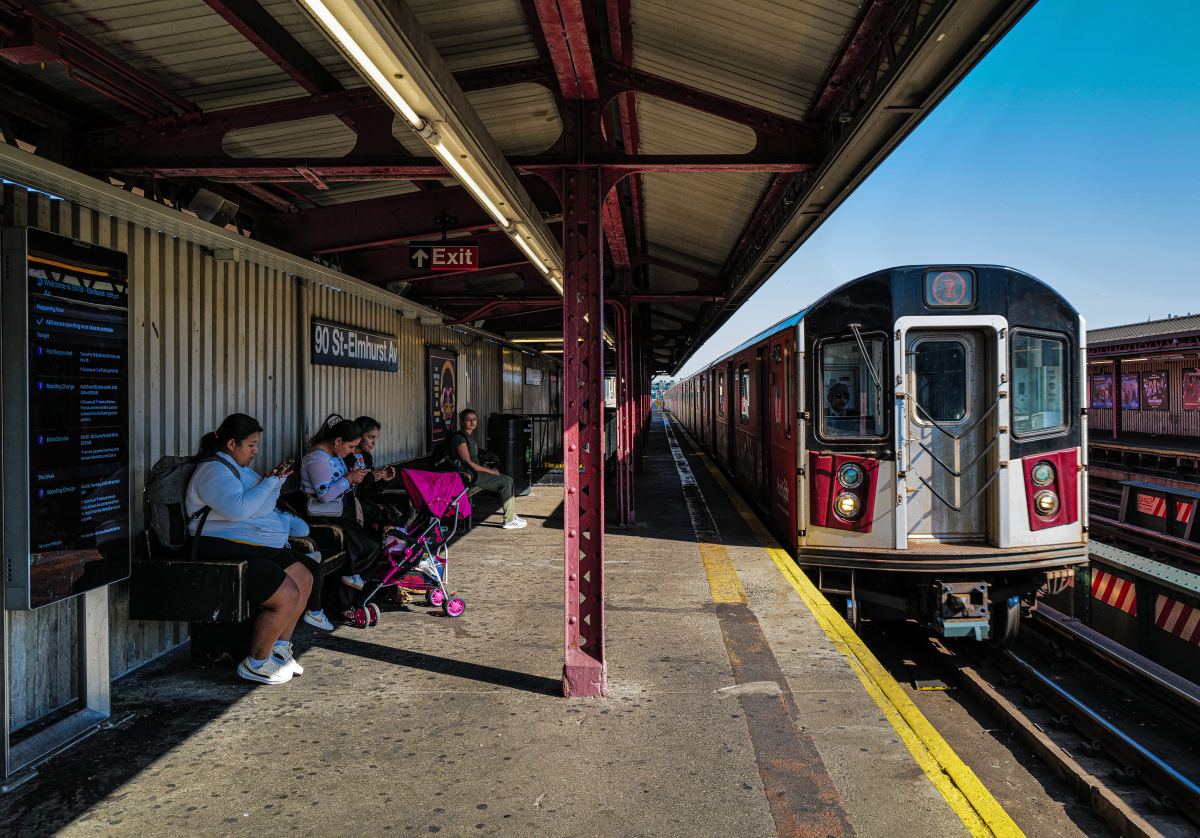With no end in sight to the government shutdown after more than two weeks, the effects continue to ripple out of Washington D.C. into the lives of people across the country. In New York City, that means closed attractions, volunteers picking up the slack in national parks, and changes that could affect local businesses’ plans for the future.
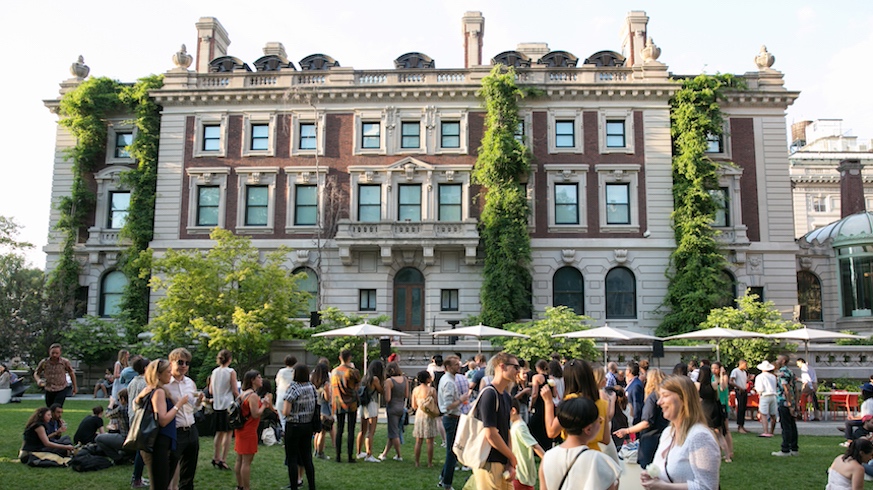
What’s closed in NYC during the government shutdown?
The government shutdown could hurt the city’s tourism, which has had an eight-year streak of record numbers with 62.8 million visitors in 2017 (the numbers for 2018 have not yet been released). TSA agents are calling out “sick” or even quitting, which could make air travel to New York City more cumbersome and potentially less safe.
So getting to New York is more difficult, but people will also find the following federally managed memorials and landmarks closed to the public while the National Park Service and Smithsonian remain unfunded:
African Burial Ground: Largest Colonial-era cemetery for slaves and free African Americans
Cooper Hewitt Design Museum: A Smithsonian museum about the process and impact of design, past and present
Federal Hall: The site where George Washington was inaugurated as president (you can still take selfies with his statue on the steps)
General Grant National Memorial: The tomb of 18th President Ulysses S. Grant and his wife Julia
Hamilton Grange: The Harlem home of Alexander Hamilton and Elizabeth Schuyler was built in 1802
Theodore Roosevelt’s Birthplace: The 26th president was born at this home and lived there until age 14
National Museum of the American Indian: A Smithsonian museum showcasing Native Americans artifacts and modern art
The major exceptions to the shutdown are the Statue of Liberty, Ellis Island and Castle Clinton, which Gov. Andrew Cuomo’s administration stepped in to keep open. The state is paying $65,000 per day to fully fund operations and pay the 900 staff who work at the sites, as it did during previous shutdowns in 2013 and 2018. Liberty Island alone receives 4.5 million visitors annually who spend $263.2 million, according to a 2016 study by the Park Service. “We will not allow President Trump’s repugnant symbol of division close the true representations of who we are as a state and a nation,” Cuomo said.
After the holidays is typically a slower time for tourism in New York, which is when the city’s marketing bureau NYC & Company holds promotions like Broadway Week and Must-See Week, when dozens of popular attractions offer 2-for-1 tickets from Jan. 21-Feb. 10. One of the sites lined up to participate is the Cooper Hewitt Design Museum, but it’s closed as long as the shutdown goes on because it’s owned by the Smithsonian that receives 70% of its funding from the federal government.
“We are disappointed that not everything is open, but we would be more disappointed if the Statue of Liberty were closed,” says Chris Heywood of NYC & Company. “We will be watching it closely, and the longer it continues the more it creates concerns for us.”
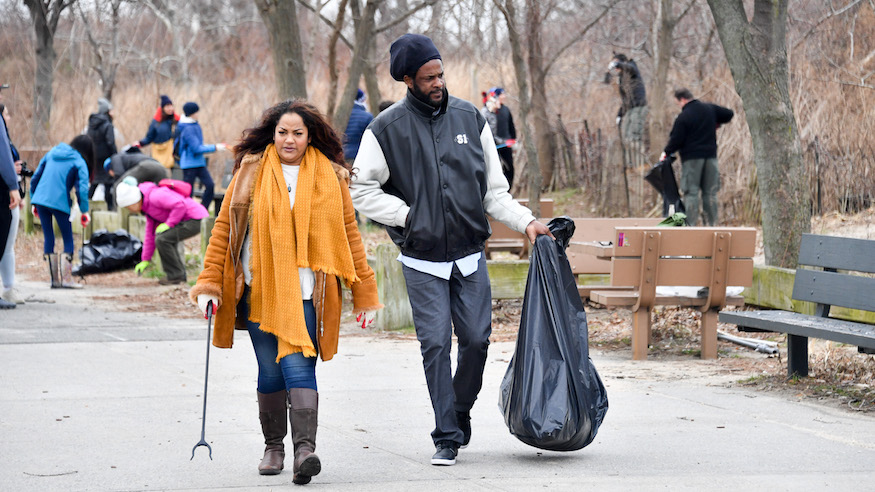
Volunteers with the Jamaica Bay Rockaway Parks Conservancy and the NYC Department of Parks & Recreation clean up Plumb Beach. Credit: Daniel Avila, NYC Parks
Stepping up to keep national parks clean
Like other national parks, the 27,000-acre Gateway National Recreation Area that spans Brooklyn, Queens and Staten Island remains open during the shutdown but National Park Service staff are furloughed, restrooms and facilities are closed, and there’s no trash collection or road maintenance. The site includes the Jamaica Bay Wildlife Refuge, Fort Tilden, Jacob Riis Park, Floyd Bennett Field, Plumb Beach and Canarsie Pier.
The Jamaica Bay Rockaway Parks Conservancy, a public-private partnership founded in 2013 that works to improve city and national parkland, holds regular cleanups, most recently on Jan. 6 at Plumb Beach and the Jamaica Bay Greenway. The area tends to see a fair amount of trash even during the winter months because of the Belt Parkway and debris that floats in from Jamaica Bay.
“The park has not seen any cleaning services for quite some time,” says Alex Zablocki, executive director of the conservancy. “We had always planned on doing this, but it was really special to have everyone out on a day when the park really needed our help.”
Volunteers picked up trash that had washed up on the beach and been discarded along the freeway as usual, but also took the unusual step of emptying out overflowing garbage bins on Canarsie Pier and the nearby parking lot. And they weren’t alone this time: NYC Parks & Recreation also helped with collection and brought a dump truck to haul it away. “I would say out of all the parks, Canarsie Pier is the busiest during this season; we saw a lot of fishermen out there and families using the park,” he says. “The public is still welcome to utilize the park at their discretion.”
Thankfully, Zablocki’s team didn’t see any vandalism like what’s been reported at Yellowstone and Joshua Tree national parks, where people have cut down trees and gone off-roading in restricted areas. He asks Gateway visitors to take trash with them when they go while the shutdown lasts.
Another cleanup is set for Feb. 2, which is also World Wetlands Day. And after the current crisis is resolved, Zablocki hopes to create a better plan for the next shutdown. “If this were during the summertime, we would see thousands of users in our parks, and we certainly don’t want to rob the public of these great amenities and open spaces,” he says. “It’s something that we’ll look at after the shutdown with our partners at the National Park Service and the city’s Department of Parks and Recreation so we’re prepared next time.”
Future effects of the shutdown
While attractions will reopen and volunteers can help mitigate the damage to parks, New York businesses stand to be affected in the long term. Various Trump administration policies have been weighing on the craft beer business, including higher tariffs leading to more expensive aluminum for cans. Now because of the shutdown, breweries can’t sign new leases or get approval for new labels because the Treasury Department is closed, the New York Times reports.
Transmitter Brewing in Queens is in the process of moving to a larger facility in the Brooklyn Navy Yard, but those plans are on hold because they can’t get approval for their new lease. “We’re a small business, and it could potentially ruin us,” one of the brewery’s founders Rob Kolb tells the Times.

